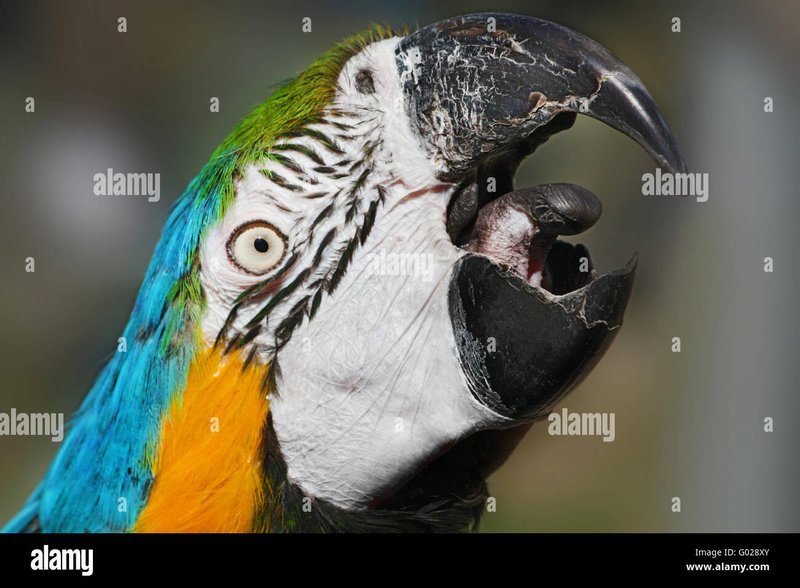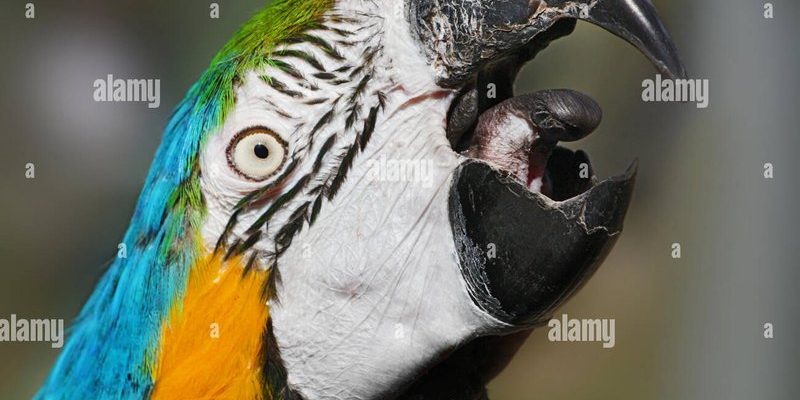
Think of a macaw as a mini feathery tornado. They’re energetic, demanding, and often loud in their expression. While their beauty and charm can quickly win your heart, understanding their behavior is crucial for a harmonious relationship. In this guide, we’ll explore why macaws scream, why they might bite, and what their body language means—essentially giving you the keys to their colorful world.
Why Do Macaws Scream?
You may have heard the saying, “the louder, the better,” and if that’s true, macaws take it to heart! Macaws are known for their loud vocalizations, which can be as ear-piercing as they are beautiful. But why do they scream? Honestly, there’s more to it than just showing off their vocal skills.
Firstly, macaws are social animals. In the wild, they use loud calls to communicate with their flock. So, when your macaw is squawking, it could simply be their way of saying, “Hey, I’m here! Where is everyone?” They might be trying to get your attention because they’re bored or want to play. Just like us, they crave interaction.
Moreover, macaws scream when they’re excited—maybe it’s their favorite time of day or they spot a familiar face. On the flip side, they might also scream when they’re stressed or uncomfortable, such as when they’re in a new environment. Understanding the context of their screeching is key. Are they excited? Anxious? Or just wanting to chat?
When Is Scream Normal?
It’s crucial to recognize that some screaming is perfectly normal behavior for macaws. Here’s when you shouldn’t be alarmed:
- Morning Greetings: Many birds greet the day with vocalizations. They’re calling out to wake their flock—or you!
- When You Arrive Home: Imagine a pure wave of joy! They might scream with excitement when they see you after a long day.
- During Playtime: If they’re having a blast with toys or during interaction, expect some joyful noises.
Understanding the timings and reasons behind your macaw’s screams can ease your concerns and help you appreciate their spirited nature.
Why Do Macaws Bite?
Biting can be a concerning behavior for many new macaw owners. A bite from a macaw can be painful, given their strong beaks. So, why do they nip? It’s not always aggression, and understanding the context can make all the difference.
Firstly, macaws may bite when they feel threatened or scared. If a sudden movement startles them, they might lash out as a protection instinct. Additionally, they might bite to establish dominance. In their eyes, playful nibbles can be a way of saying, “Hey, I’m in charge here!”
Sometimes, biting can also be playful. Picture a child teasing a sibling—they’re not really angry; they just want to engage. Macaws, too, can bite during play as they explore and test their environment. It’s crucial to differentiate between a playful bite and a more aggressive one.
Differentiating Between Playful and Aggressive Bites
Here’s how to identify the type of bite your macaw is giving:
- Playful Bites: Often light and quick. Your macaw might be hopping around excitedly and nipping at your fingers as a sign of affection.
- Aggressive Bites: These tend to be forceful and accompanied by vocalizations like growls. It’s a clear sign your bird is feeling threatened and you should back off.
Recognizing the signs can help you respond appropriately, reinforcing positive interactions and reducing the chances of painful bites.
Understanding Macaw Body Language
Macaws express their feelings not only through sounds but also through their body language. Being observant can make a significant difference in your relationship. Here are some common body language cues to watch for.
When a macaw holds its wings out slightly, it often means they’re excited or curious. It’s like they’re ready to leap into an adventure! On the flip side, if your macaw fluffs up its feathers while perched, it can indicate that they’re feeling threatened or uncomfortable.
Another vital cue is their tail feathers. If a macaw spreads its tail wide, it might be trying to grab your attention or show off its beauty. However, if they tuck their tail, they could be feeling anxious. Paying attention to how they position themselves can help you interpret their feelings at a glance.
Key Body Language Signals
Here’s a quick reference for visual cues:
- Relaxed Posture: Wings held close, tail down. Your macaw is feeling secure and calm.
- Fluffed Feathers: This could indicate fear or discomfort. Check their environment for potential stressors.
- Chasing or Bouncing: They’re in the mood for play! Engage with them to strengthen your bond.
With some attention and practice, you’ll be able to decode your macaw’s emotions effectively.
What You Can Do to Address Screaming and Biting
Now that we’ve unpacked some behavior patterns, you might be wondering how to handle screaming and biting. Here are some practical tips to help manage these behaviors effectively.
Firstly, addressing screams involves understanding their need for attention. Set aside dedicated playtime where you give your macaw undivided attention. Engaging with them through toys or training can provide mental stimulation and reduce the need for loud calls.
Secondly, managing bites can be a bit trickier. It’s vital to respect their boundaries and avoid forcing interaction when they seem uncomfortable. If biting occurs, gently remove your hand and give them space. This teaches them that biting doesn’t get them the attention they may seek.
Lastly, consider providing your macaw with a variety of toys and activities to keep them occupied. Boredom can lead to excessive screaming or nipping. By providing engaging toys, you’re giving them a way to express themselves positively.
Creating a Positive Environment
Here are some strategies to create a more harmonious living space for you and your macaw:
- Enrich Their Space: Offer various toys that cater to their natural instincts—chewing, climbing, and foraging.
- Routine is Key: Establishing a consistent daily routine can help reduce anxiety and screaming.
- Positive Reinforcement: Reward your macaw for good behavior with treats or praise to encourage positive interactions.
Creating a nurturing environment not only helps lessen undesirable behaviors but also strengthens your bond with your macaw.
Understanding macaw behavior can feel overwhelming at first, but with a bit of patience and observation, it becomes a rewarding experience. These beautiful birds have rich personalities, and learning about their screaming, biting, and body language opens up a whole new level of connection.
By tuning into their needs and emotions, you can foster a happier, healthier relationship with your feathered friend. Remember, every squawk is a chat, every nip is a conversation, and every little quirk is part of the colorful tapestry that makes your macaw uniquely them. Enjoy the journey, and embrace the joyful chaos they bring!

